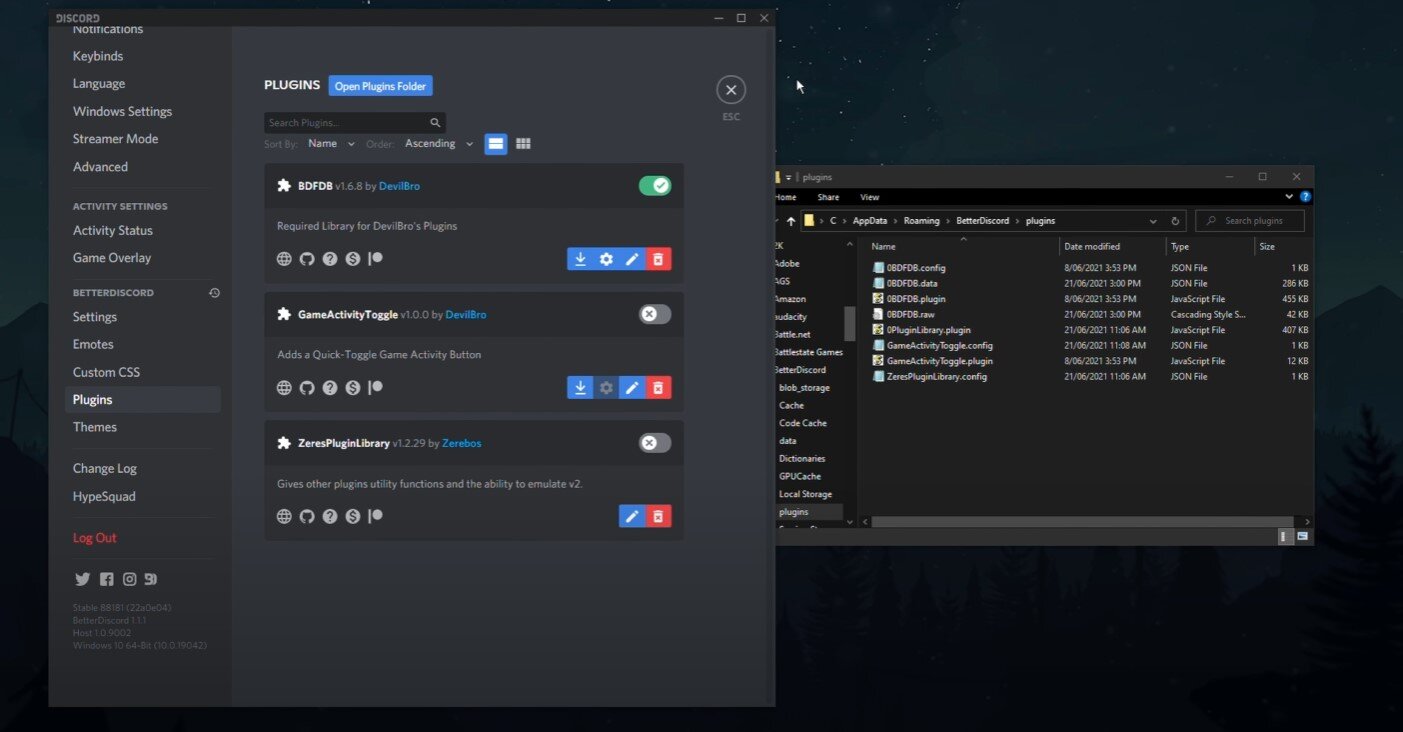
- #Call time counter discord plugin how to#
- #Call time counter discord plugin install#
- #Call time counter discord plugin full#
- #Call time counter discord plugin code#
Source plugins take advantage of the sourceNodes API and the createNode action provided by Gatsby to make your data queryable during the build process.
#Call time counter discord plugin code#
You can secure your key using environment variables if you’re pushing code to a public repository.Īlternately, if you want to source data yourself you can use APIs Gatsby provides. Then, add the plugin to your gatsby-config.js file:īecause the GitHub GraphQL API requires you to be authenticated to make requests, you need to create a token and replace the “your-github-token” text in the header for Authorization with that token.
#Call time counter discord plugin install#
To use gatsby-source-graphql, first install it: To source data using an existing source plugin you need to install a plugin and add it to your Gatsby config file. This process of fetching data at build time and creating pages from the data is covered in more depth in the tutorial as well as the docs for creating pages from data programmatically. You can read about that process in the Creating a Source Plugin guide. This is the same method that source plugins implement to source data while the site builds.


To source data yourself you can create an integration with a third-party system by creating nodes for the GraphQL layer in your gatsby-node file from retrieved data that becomes queryable in pages. In order to fetch data at build time, you can use a source plugin or source data yourself.
#Call time counter discord plugin full#
The repo’s star counts, on the other hand, are likely to change often and would benefit from a client-side request to the GitHub API to stay current between static site builds.Ĭheck out the code from the full example here. client runtime will vary, but in this example the repo’s name and URL are much less likely to change between builds of the site. Reasons to fetch certain data at build time vs. It uses the gatsby-source-graphql plugin to fetch data from GitHub’s GraphQL API at build time for static content like the name and URL to a repository, and the fetch API to retrieve more dynamic data from the GitHub API on the client-side like star counts when the page loads in the browser. To illustrate a combination of build time and client runtime data, this guide uses code from a small example site. Combining build time and client runtime data However, some websites with more dynamic needs require a client-side runtime to handle constantly changing content after the page loads, like a chat widget, user upvotes, or an email client web application. To understand how statically generated content can turn into a React app, refer to the Understanding React Hydration guideĬompiling pages at build time is useful when your website content won’t change often, or when triggering a build process to recompile works fine.

The result of this process creates fast loading pages and a nice user experience. When Gatsby’s script bundle downloads and executes in the browser, it preserves the HTML markup built by Gatsby and turns the site into a full React web application that can manipulate the DOM. This combination of static/dynamic is possible through React hydration, which means that Gatsby (through React.js) builds static files to render server-side. Then, for data that is of a more dynamic nature, you can request data from another service like an API with fetch or a library like axios. You can gather data ahead of time while the site builds so that when a user loads your page the data is already available. The benefits of the hybrid nature of Gatsby appsīecause Gatsby is capable of generating content at build time as well as making calls to external services at runtime, you can make hybrid pages that take advantage of the benefits of static content as well as dynamic content. Be sure to check out Gatsby’s plugin library to see if there’s an off-the-shelf solution for your data requirements, such as sourcing from a CMS or other third-party integration. Most of the techniques outlined are for custom data handling.

#Call time counter discord plugin how to#
This guide demonstrates how to fetch data at both build time and runtime in Gatsby.


 0 kommentar(er)
0 kommentar(er)
